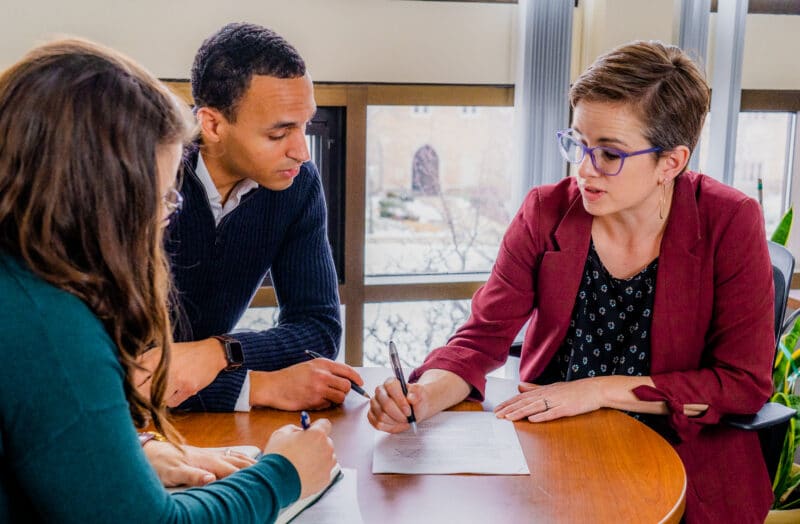End-of-Semester Reflection: A Tool to Improve Future Courses

By Kathryn Trentadue
As the semester draws to a close, the final burst of busyness will soon give way to the relative calm of summer. While taking some time to relax is certainly important, the end of the semester also offers an excellent opportunity to reflect on how the semester has gone. As we continue to learn from our teaching experiences, taking some time to consider the highs and lows of the previous semester and adapt our future plans based on the lessons learned can offer noticeable improvements to our future teaching. We recommend three steps for efficiently evaluating your own teaching and planning future courses based on the feedback you’ve received.
Assemble Feedback
The most important starting point is to collect the information that you acquired over the course of the semester. This can consist of any source of feedback, explicit or implicit, that you received from the class. Some examples of items to consider include:
- Mid-semester and end-of-semester student surveys or CIFs
- Any teaching evaluation you received during the semester
- Student performance/grades/progress towards learning objectives
- Any notes or reflections you recorded during the semester about what did (or didn’t) work well
Analyze Feedback
With your course artifacts assembled, you can begin to draw relevant lessons from within the information you’ve received. While individual student comments on surveys may or may not be helpful, look for any patterns which emerge. Some helpful questions to consider when assessing how your course went include:
- How well did your students meet your stated learning objectives? Which areas did they succeed in, and where did they struggle?
- Which components of your course engaged students most effectively? Do these areas correspond to sections where students performed well, or is there a disconnect between student learning and student engagement?
- Did you adapt course elements after evaluations? How did you address student concerns between mid-semester and end-of-semester evaluations?
- Are there any overall themes which emerge from your student comments or teaching evaluations which you feel need to be addressed?
Adapt Future Plans
Once you have analyzed your course artifacts to determine what went well and what could be improved upon, consider how to adapt your future teaching. Perhaps you’re teaching the same course again in the future, in which case you might revise your course materials based on areas that students have encountered difficulties. Or perhaps you won’t be teaching this course again, so feedback about your teaching style is more relevant to consider. Some ways to approach this revision process include:
- Revisit learning goals and ensure your class activities and assessments align with those goals.
- Revise teaching approaches in areas where students have struggled. Consider allocating more time or adjusting your methodology for those sections.
- Brainstorm ways to increase student engagement, especially in areas where students have struggled.
- Consider building flexibility into your course design to allow for adaptation based on feedback from students.
- Compile clear notes for yourself so that you can incorporate what you’ve learned into your future teaching!
By taking time to self-assess, we can learn from our teaching experiences and continue to hone our pedagogical techniques. The simple act of reflecting on areas that went well and areas that may require adaptation can pay dividends for the teaching of future courses. If you are interested in discussing ways to improve future courses based on feedback you’ve received, consider scheduling a consultation with the Kaneb center today!
Resources for Further Reading:
Reflective Teaching | Poorvu Center for Teaching and Learning (yale.edu)
Becoming a Critically Reflective Teacher (2017), Stephen Brookfield
Reflective Teaching Model (emu.edu)
End-of-Semester Reflection (academyart.com)
End of Semester Teaching Reflection Activities.pdf (unl.edu)